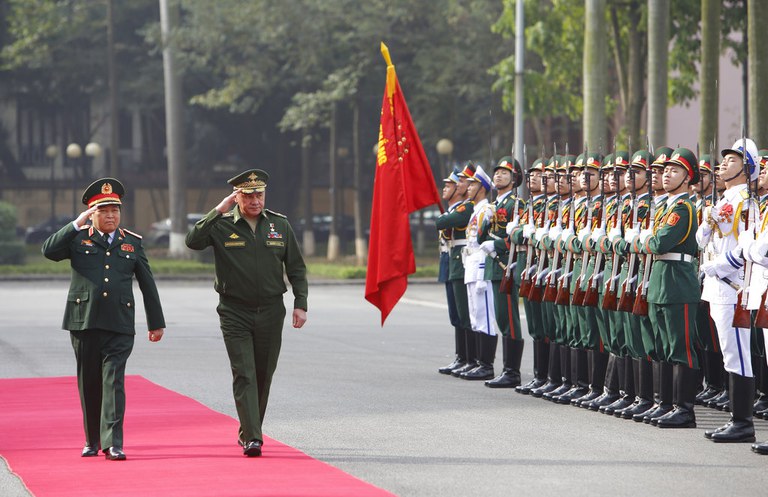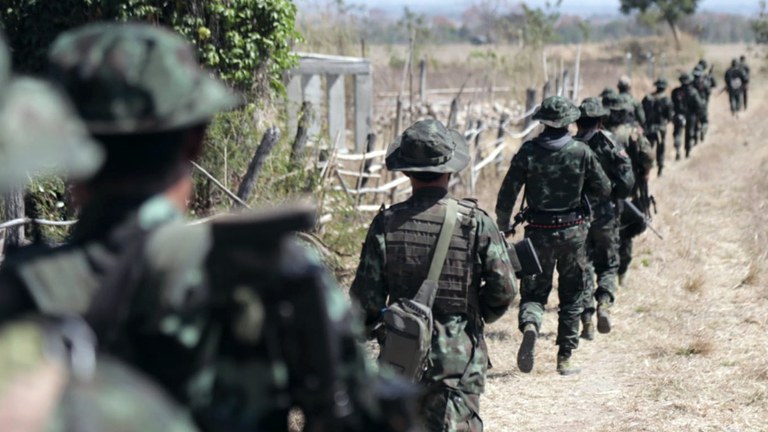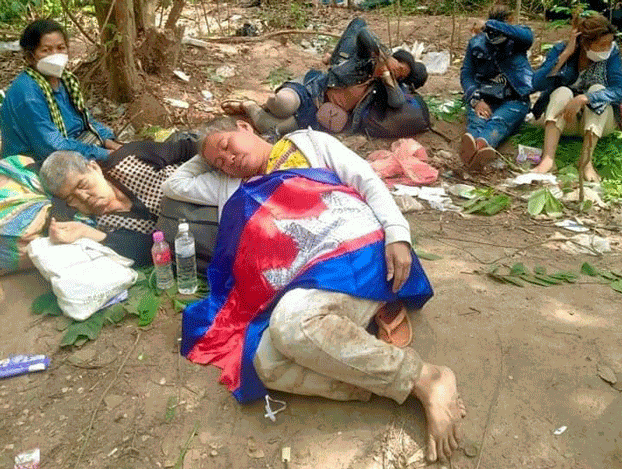As a citywide lockdown continued in Shanghai and around 100 cities imposed more limited COVID-19 curbs, immigration consultancies said they are receiving a record number of inquiries from people hoping to get out of China for good. Keyword searches relating to emigration spiked more than 100-fold in recent days, according to publicly available data from the Baidu search engine for the week from March 28 to April 3. Canada, the United States and Australia were the top three countries shown in such searches, with searches for immigration to Canada showing a 28-fold increase compared with the previous week. “The number of immigration consultations has skyrocketed in the past few days,” an employee who answered the phone at the Beijing-based immigration consultancy Qiaowai told RFA on Wednesday. “We are very busy every day, and waiting times are relatively long, because we don’t have enough consultants.” “This is likely the case for every other company [in the sector],” the employee said. “There are more coming from Shanghai because the pandemic is pretty bad in Shanghai right now.” An employee who answered the phone at the Immigration 11 agency gave a similar response. “There are quite a lot of people inquiring,” the employee said. “I need to hurry up [with this call].” “Is it the pandemic? We’ve had a lot of people consulting us from Shanghai in Guangdong, and also a lot from Beijing,” the employee said. Senior journalist Chen Hongtao said the figures could be an indication that high-ranking officials in the ruling Chinese Communist Party (CCP) and their families are voting with their feet. “Anyone who has the option to leave may be thinking about how to get out,” Chen said. “Those who work for the regime don’t believe [propaganda], and they have access to a lot more information [than regular people].” “Most middle and working-class people don’t have the wherewithal to get hold of comprehensive information,” he said. “They’re the ones who believe what the little pinks [pro-CCP commentators] tell them.” A woman who identified herself by the pseudonym Zhang Li said she and her friends are in the process of trying to leave China. “I don’t think this is weird at all,” Zhang said. “It’s normal … because the pandemic disease control measures aren’t based on scientific decisions.” “I know a woman, a medical student, who is currently submitting her application to emigrate to the U.S.,” she said. “She plans to study [English] first, then become a nurse.” However, it looks likely that the majority of people will have trouble leaving, in the absence of political clout or existing immigration channels. An employee who answered the phone at the Shanghai police department’s exit and entry administration said the office, which issues passports and exit permits, is currently closed. “You can’t apply for passports, and entry-exit offices are all closed around here because of the pandemic,” the employee said. “There are some cases where on-site review of materials is happening for emergency circumstances, for example, to visit the critically ill overseas, or to go and study overseas,” they said. Meanwhile, residents of Shanghai said they are still struggling to source enough food and other daily necessities, with strict stay-at-home orders still in place across the city. “I went to the neighborhood committee to order food,” a resident surnamed Xu told RFA. “It’s been 20 days, and I still haven’t gotten the rice I ordered. I am out of oil and soy sauce for cooking at home, and I haven’t been able to buy more.” “I have to try to get food sent from online… we have been locked down here since March 8,” she said. A resident of Baoshan district surnamed Zheng said people who test positive are now being “sealed” inside their own apartments or buildings, as isolation and quarantine facilities are full. “If you test positive, the entire building will be sealed off with barbed wire, and nobody will be allowed in or out,” Zheng told RFA. “The disease control people set up a hut outside to guard it.” “Last week, they would take you away in a vehicle immediately if you tested positive,” he said. “That’s not the way they’re doing it now.” A resident of Xuhui district surnamed Liu said the supplies delivered to people’s homes during the lockdown were nowhere near enough to last the entire length of lockdown. “In the first stage, some people had no food,” she said. “In the second stage, Pudong was closed for four days, and then Puxi was closed for another four days, but I didn’t expect the city to be locked down forever.” “They government sent a batch of groceries, but … the food they have distributed was far from enough,” Liu said. A resident surnamed Zhao gave a similar account. “We have been locked down for more than a month, and we had food for four days,” he said. “There’s not enough for such a long time… all the stores are closed.” The Shanghai municipal health commission reported a total of 27,719 newly confirmed cases on Thursday, with rapidly constructed and converted field hospitals and quarantine facilities unable to meet demand for beds. “You can’t get into the Fangcang cabin hospitals, and a lot of people can’t even get an ambulance if they call 120,” Zheng said. “We have no idea how many people have died of COVID-19.” However, reports have also emerged of people being forcibly dragged from their homes to isolation facilities, even with a negative PCR test. One audio recording features a young couple who have tested negative arguing with enforcement personnel. “Our tests were negative,” one person says, while a police officer answers: “The Center for Disease Control and Prevention (CDC) says you are positive.” “No way,” the person replies. “I have a negative test result. If I go to the cabin hospital I will wind up positive.” The ongoing lockdown comes after CCP leader Xi Jinping urged local governments on Wednesday to stick to his zero-COVID policy, with a slew of reports and commentaries in state media defending the…





